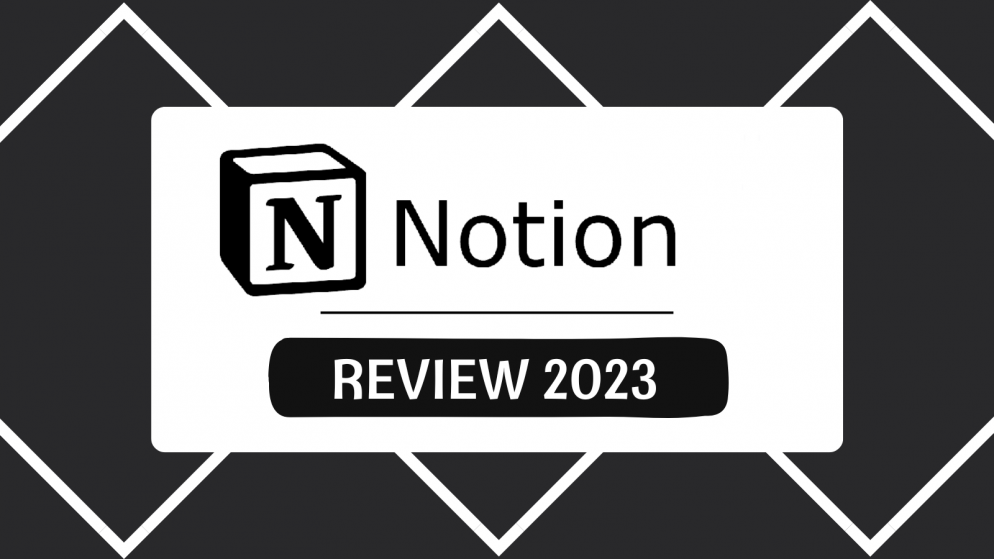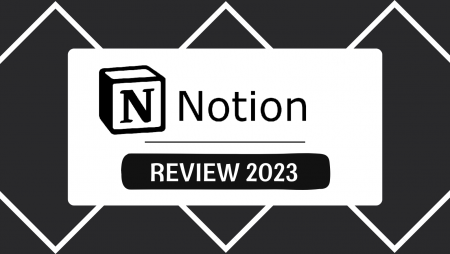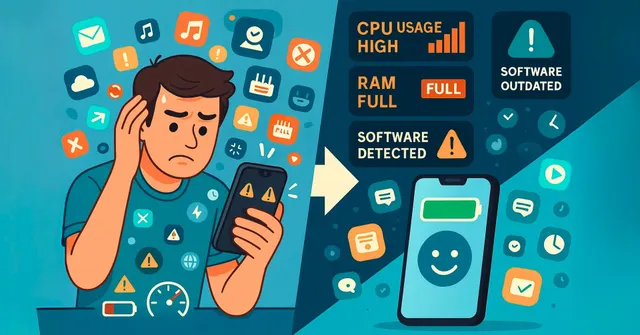

About Notion
Notion is a versatile productivity tool that combines note-taking, project management, and collaboration features. It allows users to create and organize various types of content, including notes, documents, databases, task lists, and more, all within a single platform.
Notion provides a flexible workspace where you can create pages and subpages, similar to a hierarchical folder structure. These pages can be customized with different types of content blocks, such as text, images, videos, to-do lists, tables, and even embeddable content from other websites or services.
One of Notion’s notable features is its database functionality. You can create databases to store and manage structured information, such as inventory lists, customer databases, or project trackers. Databases in Notion are highly customizable, allowing you to define different properties and views to visualize your data in various ways.
Notion also emphasizes collaboration and teamwork. You can share pages or databases with others, allowing them to view or edit the content. It supports real-time collaboration, enabling multiple users to work on the same page simultaneously. Additionally, you can assign tasks, leave comments, and mention other users to facilitate communication and collaboration within Notion.
Furthermore, Notion offers powerful organization and search capabilities. You can tag pages, create links between related content, and use its built-in search functionality to quickly find information across your workspace.
Notion is available on multiple platforms, including web, desktop (Windows and macOS), and mobile (iOS and Android). It offers both free and paid plans, with the paid plans unlocking additional features, including increased file upload limits, advanced permissions, and integrations with other services.
Notion is a highly flexible and customizable productivity tool that can be adapted to various personal and professional use cases, making it popular among individuals, teams, and organizations.
Notion Features
Notion offers a wide range of features that can be utilized for personal and professional productivity. Here are some key features of Notion:
- Flexible Workspace: Notion provides a flexible workspace where you can create and organize pages, subpages, and folders in a hierarchical structure, allowing you to customize your content organization according to your needs.
- Content Blocks: You can add various content blocks to your pages, including text, headings, images, videos, code snippets, tables, to-do lists, bookmarks, and more. These blocks can be easily rearranged, edited, and formatted.
- Database Functionality: Notion allows you to create databases to store and manage structured information. Databases can have different properties, such as text, number, date, person, and more. You can create linked databases, filter and sort data, and create different views to visualize your information.
- Templates and Pre-designed Blocks: Notion provides a library of templates and pre-designed blocks that you can use as a starting point for different purposes, such as project management, meeting notes, personal journaling, habit tracking, and more. These templates can be customized to fit your specific needs.
- Real-time Collaboration: Notion supports real-time collaboration, enabling multiple users to work on the same page simultaneously. You can see the changes made by others in real-time and collaborate seamlessly with your team members.
- Task Management: You can create task lists, set due dates, and assign tasks to team members. Notion offers a kanban-style board view and a calendar view to help you visualize and track your tasks and projects.
- Embeds and Integrations: Notion allows you to embed content from various external sources, such as YouTube videos, Google Drive files, Figma designs, Trello boards, and more. It also offers integrations with popular services like Slack, GitHub, Zapier, and Google Calendar.
- Customization and Styling: Notion provides customization options to personalize your workspace. You can choose different themes, customize the appearance of pages and databases, and apply formatting styles to your content.
- Mobile and Offline Access: Notion is available on mobile devices (iOS and Android), allowing you to access and edit your content on the go. It also offers offline access, enabling you to work without an internet connection and sync your changes when you’re back online.
- Advanced Search and Organization: Notion offers a powerful search functionality that allows you to quickly find specific content within your workspace. You can also organize your pages using tags, links, and nested hierarchies to create a structured knowledge base.
These are just some of the key features that make Notion a versatile productivity tool. Notion’s flexibility and adaptability make it suitable for a wide range of use cases, from personal note-taking and task management to team collaboration and project tracking.
Notion Pricing
Notion offers both free and paid plans. Here is an overview of Notion’s pricing structure:
- Free Plan: Notion’s free plan allows you to use many of its core features with some limitations. With the free plan, you can create an unlimited number of pages and collaborate with others. However, there are certain limitations, such as a maximum upload limit of 5MB per file, limited version history, and no access to certain advanced features like API access and advanced permissions.
- Personal Plan: Notion’s Personal Plan is priced at $4 per month (billed annually) or $5 per month (billed monthly). This plan is designed for individual users. With the Personal Plan, you get unlimited file uploads, version history, and access to all basic features of Notion.
- Team Plan: Notion’s Team Plan is priced at $8 per member per month (billed annually) or $10 per member per month (billed monthly). The Team Plan is suitable for teams and collaborative work. It includes all the features of the Personal Plan, plus additional features like advanced permissions, admin tools, and priority support.
- Enterprise Plan: Notion also offers an Enterprise Plan for larger organizations with specific requirements. The pricing for the Enterprise Plan is available upon request, and it provides additional features such as enhanced security, compliance, and dedicated customer support.
Notion periodically updates its pricing and features, so it’s always a good idea to check their official website for the most up-to-date information on pricing and plan details.
Notion offers a lot of functionality in its free and paid plans, some advanced features and integrations may require separate subscriptions or additional costs, such as the API access and certain third-party integrations.
Notion Ease Of Use
Notion is generally considered to be user-friendly and intuitive, especially for individuals who are familiar with digital productivity tools. Here are some factors that contribute to the ease of use of Notion:
- Simple Interface: Notion features a clean and minimalist interface that is designed to provide a clutter-free working environment. The interface is organized and visually appealing, making it easy to navigate and find what you need.
- Drag-and-Drop Functionality: Notion allows you to easily rearrange and reorganize content blocks and pages using drag-and-drop functionality. This makes it simple to move, reorder, or nest elements within your workspace.
- WYSIWYG Editing: Notion uses a “What You See Is What You Get” (WYSIWYG) editor, meaning that you can format and style your content directly within the editor, and the changes are immediately visible as you work on your pages. This real-time editing experience makes it easier to create and customize your content.
- Intuitive Content Blocks: Notion’s content blocks, such as text, headings, images, and tables, are easy to add and manipulate. You can simply click or press Enter to add a new block, and the options for different block types are readily available. Additionally, each block has context-aware options and formatting tools that appear when you interact with them, making it intuitive to customize and edit your content.
- Templates and Pre-designed Blocks: Notion offers a wide variety of templates and pre-designed blocks that can be used as starting points for different types of projects or pages. These templates provide structure and guidance, helping users get started quickly and easily.
- Search and Organization: Notion provides a robust search functionality that allows you to find specific content within your workspace. You can also organize your pages using folders, tags, and links to create a well-structured knowledge base.
- Contextual Help and Documentation: Notion offers contextual help and documentation within the app, providing guidance and instructions when needed. They also have an extensive knowledge base and support resources on their website.
While Notion offers a lot of flexibility and customization options, the learning curve may vary depending on the complexity of your use case. However, many users find that once they become familiar with the core concepts and features, Notion becomes an intuitive tool for organizing and managing their information and tasks.
Notion continuously updates its features and interface based on user feedback, so there may be occasional changes and improvements to enhance the overall user experience.
Notion Customer Support
Notion offers customer support to assist users with their questions, issues, and inquiries. Here’s an overview of Notion’s customer support options:
- Help & Support Center: Notion has a comprehensive Help & Support Center on their website. It includes a wide range of articles and guides that cover various topics, including getting started, using specific features, troubleshooting common issues, and more. The Help & Support Center is a valuable resource for self-help and finding answers to frequently asked questions.
- Contact Form: If you need to reach out to Notion’s support team directly, you can submit a request through their contact form. You can describe your issue or question in detail, and the support team will respond via email. This is the primary method for contacting Notion’s support.
- Community Forum: Notion has an active community forum where users can interact, ask questions, and share their experiences and tips. The forum is a great place to seek help from fellow Notion users, as well as find inspiration and learn from others’ workflows.
- Social Media: Notion maintains a presence on social media platforms such as Twitter, where they share updates, tips, and announcements. While social media may not be the primary support channel, you can sometimes reach out to Notion’s support team or get updates on service status through these channels.
Notion’s customer support is primarily offered through their online resources and email-based contact form. They don’t provide live chat or phone support at the time of writing this response.
Notion has a dedicated support team that aims to respond to user inquiries in a timely manner. However, response times may vary depending on the volume of support requests they receive.
If you encounter any technical issues or have specific questions about using Notion, it’s recommended to visit their Help & Support Center first to explore the available resources. If you can’t find a satisfactory answer, you can then submit a support request through their contact form for personalized assistance.
Notion Integrations
Notion offers several integrations with popular third-party tools and services to enhance its functionality and connectivity. Here are some notable integrations that Notion supports:
- Google Drive: You can embed files and folders from Google Drive directly into your Notion pages, making it easy to access and collaborate on your Google Drive documents within Notion.
- Slack: Notion integrates with Slack, allowing you to receive notifications and updates from Notion directly in your Slack channels. You can also create new pages or share content from Notion to Slack.
- GitHub: Notion integrates with GitHub, enabling you to embed GitHub repositories, issues, pull requests, and more directly into your Notion pages. This integration helps developers manage and track their GitHub projects within Notion.
- Trello: You can integrate Trello with Notion to embed Trello boards, lists, cards, and other Trello elements into your Notion pages. This integration allows you to view and manage your Trello projects alongside your other Notion content.
- Figma: Notion integrates with Figma, a popular design tool, allowing you to embed Figma designs and prototypes into your Notion pages. This integration enables designers and teams to seamlessly collaborate on design projects within Notion.
- Google Calendar: You can sync your Google Calendar events with Notion, making it convenient to view and manage your calendar within Notion. This integration helps you stay organized and track your schedule alongside your other Notion content.
- Zapier: Notion has integration support with Zapier, which allows you to connect and automate workflows between Notion and hundreds of other apps and services. With Zapier, you can create custom automations and sync data between Notion and other tools.
- Web Clipper: Notion provides a web clipper browser extension that allows you to save web pages, articles, and other online content directly to your Notion workspace. This feature helps you gather information and references for later use.
These are just a few examples of the integrations available for Notion. Notion continues to expand its integration options, and it’s always worth exploring their official website or the integrations section within the app to discover the latest integrations and possibilities.
Who Is Notion Best For?
Notion is a highly versatile productivity tool that can be beneficial for a wide range of individuals, teams, and organizations. Here are some groups of people who may find Notion particularly useful:
- Knowledge Workers: Notion is well-suited for knowledge workers who deal with information-heavy tasks. It allows users to create and organize notes, documents, databases, and project trackers, making it an excellent tool for researchers, writers, students, and professionals who need to manage and access information efficiently.
- Project Managers and Teams: Notion provides project management features like task lists, kanban boards, and collaboration capabilities, making it suitable for project managers and teams. It helps in organizing tasks, tracking progress, assigning responsibilities, and facilitating collaboration, both within teams and across departments.
- Entrepreneurs and Small Business Owners: Notion can be a valuable tool for entrepreneurs and small business owners who need to manage various aspects of their business, such as planning, tracking goals, organizing client information, project management, and team collaboration. Its flexibility allows customization to fit specific business needs.
- Content Creators: Notion’s flexibility and rich text editing capabilities make it a useful tool for content creators, including bloggers, writers, and social media managers. It enables them to draft, organize, and plan content, collaborate with editors or clients, and maintain an editorial calendar.
- Students and Educators: Notion can be a helpful tool for students and educators to organize study materials, class notes, lesson plans, and collaborative projects. It enables students to stay organized, track assignments, and collaborate with classmates, while educators can create resource repositories and manage lesson materials.
- Personal Productivity Enthusiasts: Notion’s adaptability and customizable nature make it appealing to individuals seeking a robust personal productivity tool. It can be used for personal note-taking, task management, habit tracking, goal setting, journaling, and other personal organization needs.
- Remote Teams and Distributed Workforces: Notion’s collaborative features, real-time editing, and remote accessibility make it well-suited for remote teams and distributed workforces. It facilitates seamless collaboration and communication across team members regardless of their physical location.
These are just a few examples of the many use cases where Notion can be beneficial. Notion’s flexibility allows it to be tailored to specific needs, making it suitable for a diverse range of individuals and teams seeking a versatile and customizable productivity tool.
Notion Alternatives
While Notion is a popular productivity tool, there are several alternatives available that offer similar functionality. Here are some notable alternatives to Notion:
- Evernote: Evernote is a long-standing note-taking and organization app. It offers features such as text and multimedia notes, tagging, search functionality, and collaboration. It focuses more on note-taking and personal organization compared to the database and project management capabilities of Notion.
- Microsoft OneNote: OneNote is a note-taking app offered by Microsoft. It allows users to create digital notebooks with sections and pages, and add various types of content like text, images, and files. OneNote integrates well with other Microsoft Office applications and offers robust organization and search capabilities.
- Google Workspace (formerly G Suite): Google Workspace offers a suite of productivity tools, including Google Docs, Sheets, Slides, and Google Keep. These tools are collaborative and cloud-based, allowing users to create and edit documents, spreadsheets, presentations, and notes in real-time. Google Workspace is well-suited for collaboration and integration with other Google services.
- Trello: Trello is a popular project management and task tracking tool. It utilizes a visual interface with boards, lists, and cards to organize tasks and projects. Trello focuses on simplicity and flexibility, making it easy to track progress and collaborate with team members.
- Asana: Asana is another project management tool that helps teams organize and track tasks, projects, and workflows. It offers features such as task assignments, due dates, dependencies, and integrations with other tools. Asana provides robust collaboration and project tracking capabilities.
- Airtable: Airtable combines the functionality of a spreadsheet and a database, allowing users to create customizable databases with structured information. It offers a visual interface, powerful filtering and sorting options, and supports collaboration. Airtable is well-suited for managing and organizing data-intensive projects.
- Roam Research: Roam Research is a note-taking and knowledge management tool that focuses on bi-directional linking between notes. It emphasizes building connections between ideas and offers a unique approach to organizing and navigating interconnected information.
These are just a few examples of alternatives to Notion. The choice of which tool to use depends on specific needs, preferences, and the desired features and functionalities required for individual or team productivity. It’s recommended to explore and evaluate multiple options to find the tool that best fits your requirements.
FAQs
Is Notion free?
Yes, Notion offers a free plan that allows users to access many of its core features with certain limitations. They also offer paid plans with additional features and increased usage limits.
Is Notion available on mobile devices?
Yes, Notion is available as a mobile app for both iOS and Android devices. You can download the app from the respective app stores and access your Notion workspace on the go.
Can I collaborate with others on Notion?
Yes, Notion supports real-time collaboration, allowing multiple users to work on the same page simultaneously. You can share pages or databases with others and collaborate in real time.
Can I export my data from Notion?
Yes, Notion allows you to export your data in various formats, including PDF, Markdown, CSV, and HTML. You can export individual pages or your entire workspace.
Does Notion have a offline mode?
Yes, Notion has an offline mode that allows you to access and edit your content even when you’re not connected to the internet. Your changes will be synced when you go back online.
Does Notion have a desktop app?
Yes, Notion offers desktop apps for both Windows and macOS. These apps provide a dedicated desktop experience and allow for quick access to your Notion workspace.
Can I integrate Notion with other apps?
Yes, Notion offers integrations with various third-party apps and services, such as Google Drive, Slack, GitHub, Trello, Figma, and more. These integrations enhance Notion’s functionality and connectivity.
Is Notion secure?
Notion takes security seriously and implements measures to protect user data. They use encryption and secure protocols for data transmission and storage. However, it’s always important to use strong and unique passwords and follow best security practices.
Can I use Notion for personal and professional purposes?
Yes, Notion is designed to be versatile and adaptable, making it suitable for both personal and professional use. You can create different workspaces, pages, and databases to cater to various needs.
Does Notion have templates available?
Yes, Notion offers a library of templates and pre-designed blocks that users can use as starting points for different purposes. These templates cover a wide range of use cases, including project management, personal organization, meeting notes, and more.



